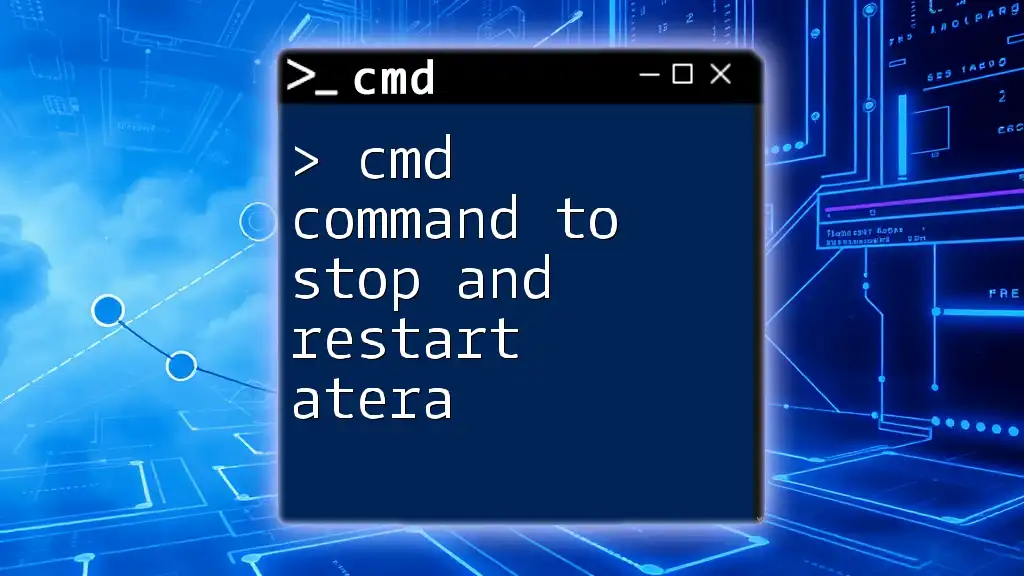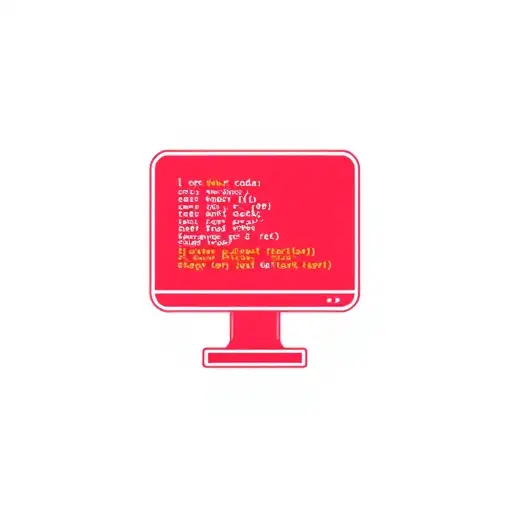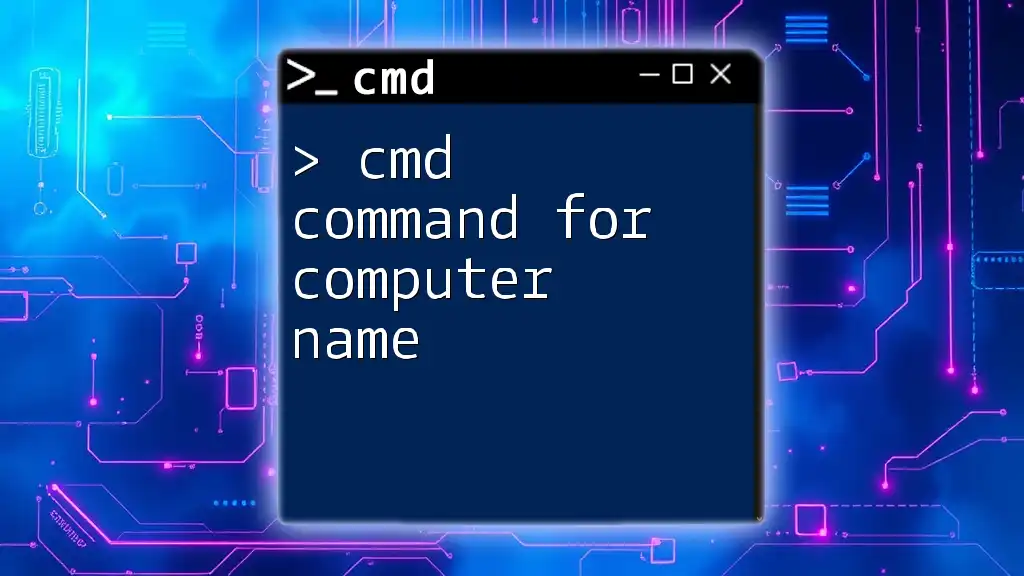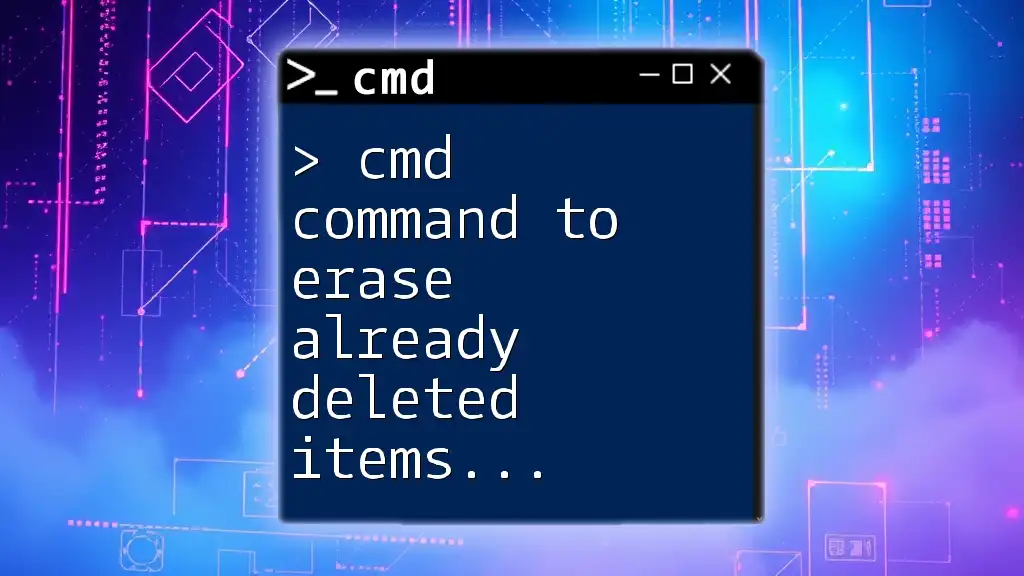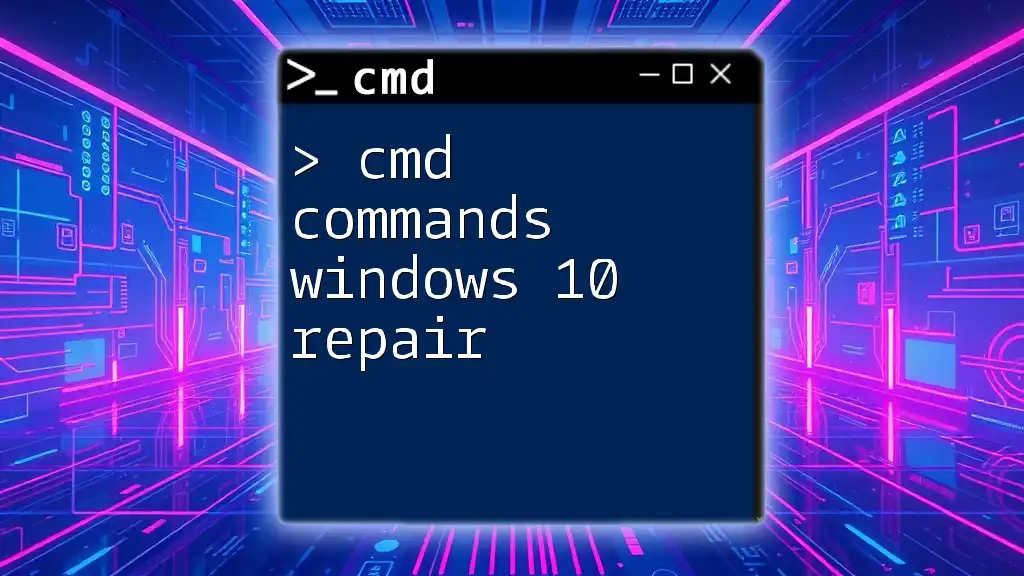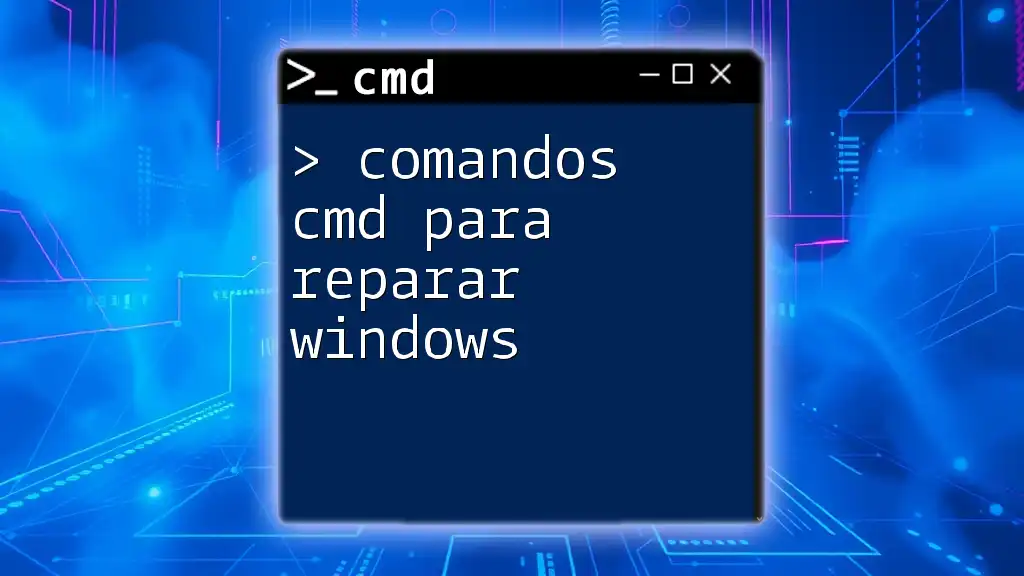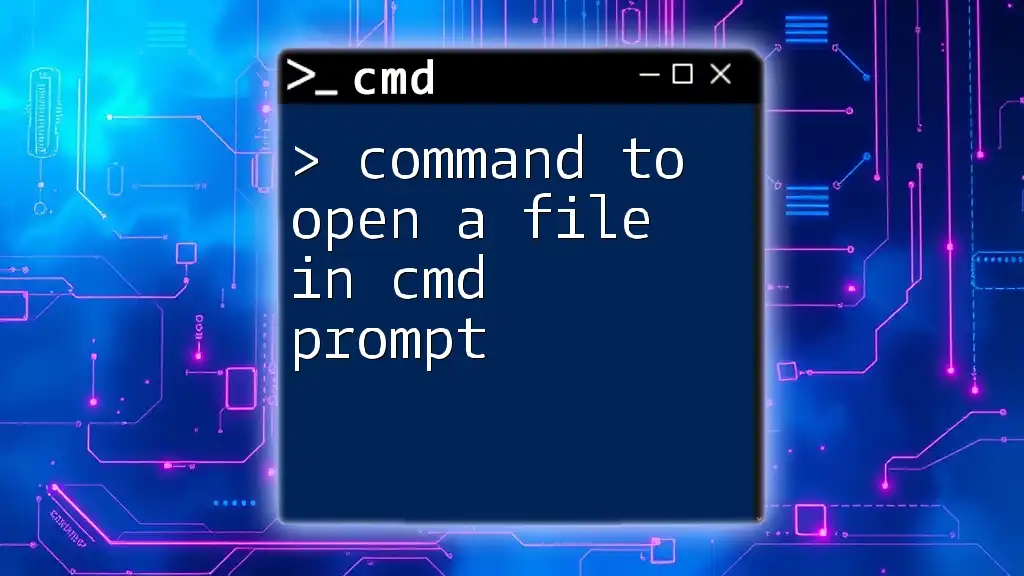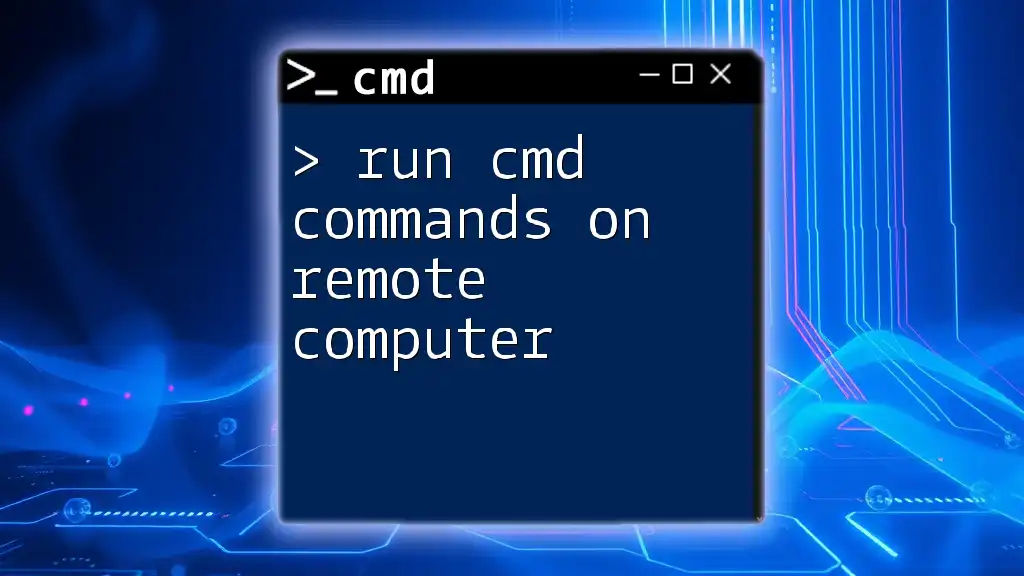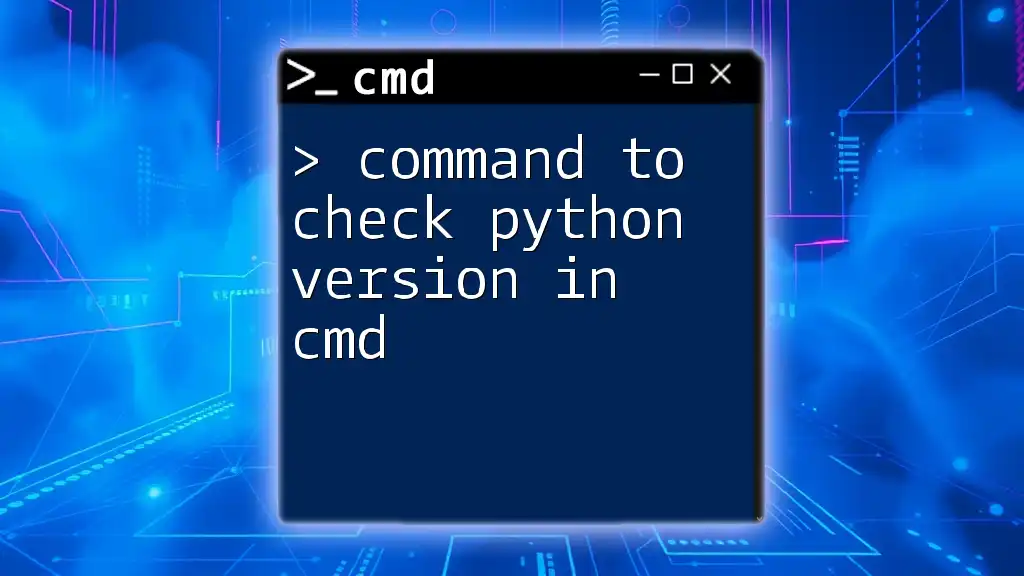To stop and restart Atera using CMD commands, you can use the following commands in your command prompt:
net stop "Atera" && net start "Atera"
Understanding CMD Commands
CMD stands for Command Prompt, a powerful command-line interpreter in Windows that allows users to execute various commands for managing the operating system. It provides a robust alternative to graphical interfaces for executing tasks efficiently.
Why might you want to utilize CMD for managing Atera? The speed and efficiency of CMD commands can significantly enhance your troubleshooting processes. Not only do they allow for rapid execution of multiple commands, but they also open up possibilities for automation and scripting.

Prerequisites
Before you begin executing CMD commands, make sure you meet a few prerequisites.
System Requirements
Ensure that you are using a compatible version of Windows that has the Command Prompt functionality. Windows 7, 8, and 10 support CMD, making it accessible for most users.
Necessary Permissions
For many commands, including those to manage Atera, administrative privileges are often required. Running CMD with these privileges is essential to ensure that you can stop and restart Atera without restrictions. You can do this by right-clicking on the Command Prompt icon and selecting "Run as administrator."

How to Stop Atera Using CMD
To stop Atera, follow these steps:
Accessing Command Prompt
Open Command Prompt by searching for it in the Start menu. Make sure to run it as an administrator to avoid any permission issues.
CMD Command to Stop Atera
To terminate the Atera application, use the following command:
taskkill /F /IM atera.exe
Explanation:
- `taskkill`: This command is used to terminate processes.
- `/F`: This parameter forces termination, which means it will close Atera even if it's currently unsure about shutting down.
- `/IM atera.exe`: This specifies the image name of the application you want to stop.
Verifying Atera has Stopped
To confirm that Atera has successfully stopped, you can check the running processes. Use the following command to list active processes and filter for Atera:
tasklist | findstr atera
If nothing is returned, Atera is no longer running.
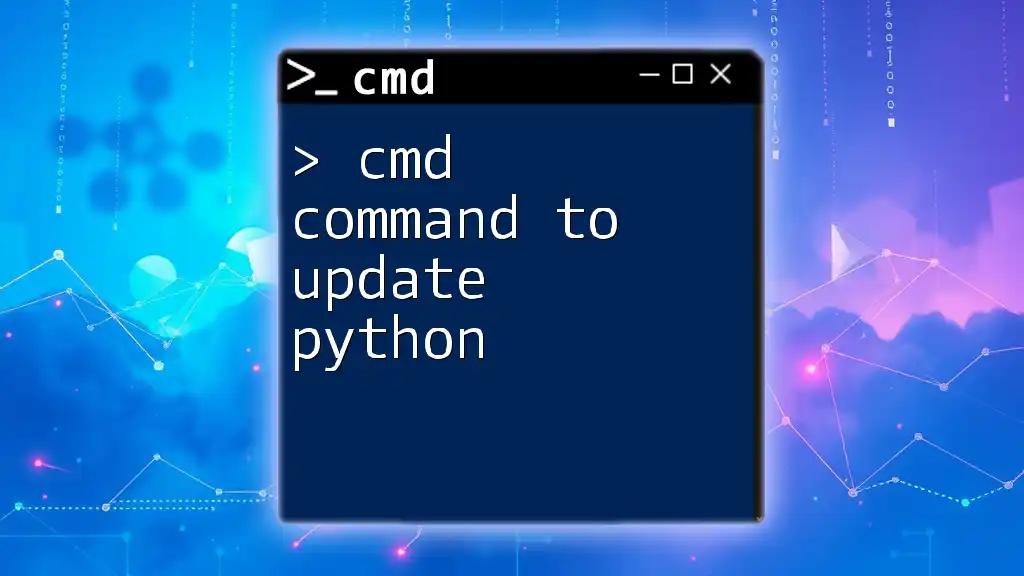
How to Restart Atera Using CMD
Now that you’ve learned how to stop Atera, let’s look at how to restart it.
CMD Command to Start Atera
You can start Atera again using this command:
start "" "C:\Program Files (x86)\Atera\atera.exe"
Explanation:
- `start`: This command initializes a new instance of a program.
- `""`: This is a placeholder for the window title, which we leave blank here.
- `"C:\Program Files (x86)\Atera\atera.exe"`: This is the full path to the Atera executable. Ensure this matches your installation path.
Verifying Atera has Restarted
Once you execute the command to start Atera, you can verify whether it’s running using the same method as before:
tasklist | findstr atera
If the command returns Atera’s process, you’ve successfully restarted the application.
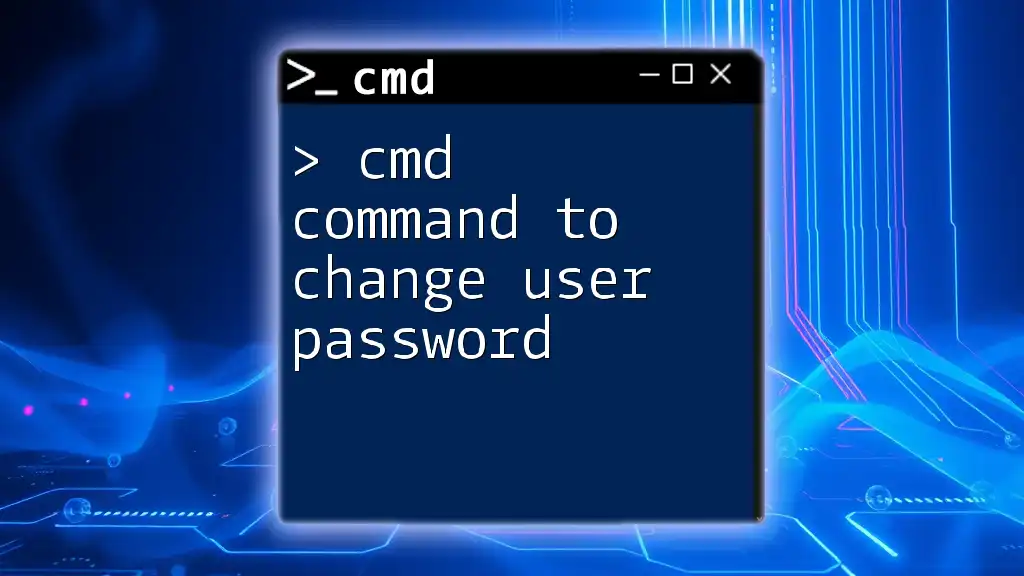
Automating Stop and Restart Using a Batch File
What is a Batch File?
A batch file is a simple text file that contains a sequence of commands to be executed by the command line interpreter. It’s an excellent way to automate repetitive tasks, such as stopping and restarting Atera.
Creating a Batch File for Atera
To create a batch file that will stop and restart Atera automatically, follow this sample code:
@echo off
taskkill /F /IM atera.exe
timeout /t 5
start "" "C:\Program Files (x86)\Atera\atera.exe"
Explanation:
- `@echo off`: This command prevents the command window from displaying each command as it runs, allowing for a cleaner output.
- `taskkill /F /IM atera.exe`: This line is the same command used earlier to stop Atera.
- `timeout /t 5`: This command pauses execution for 5 seconds to give Atera enough time to close before restarting.
- `start "" "C:\Program Files (x86)\Atera\atera.exe"`: This line restarts Atera.
How to Execute the Batch File
After saving your commands in a text file with a .bat extension, you can execute the batch file simply by double-clicking it.
For more advanced automation, you might consider using Windows Task Scheduler to schedule the execution of this batch file at regular intervals.
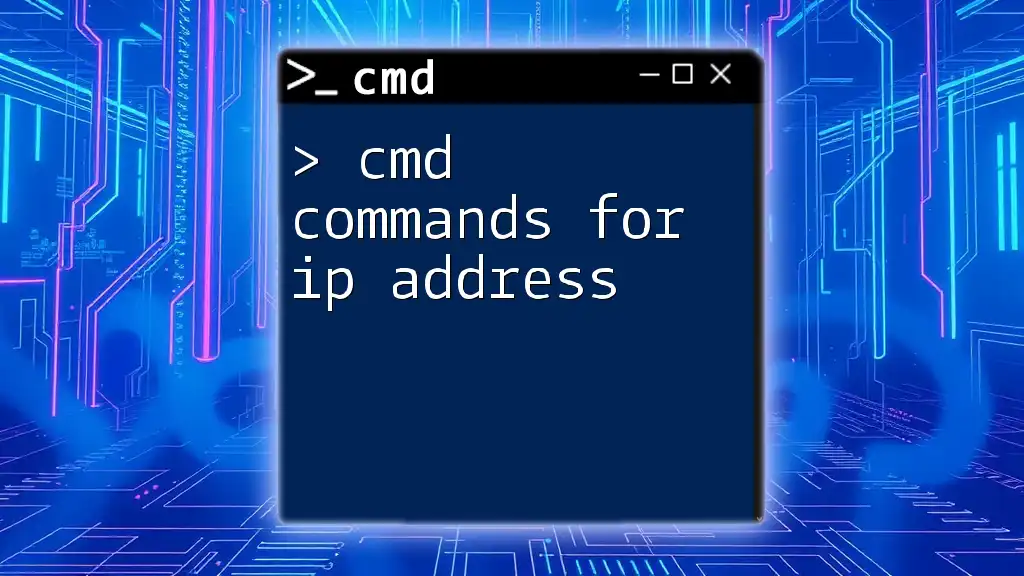
Troubleshooting Common Issues
Atera Not Stopping or Restarting
If you encounter problems with Atera not stopping or restarting, there are a few common culprits worth checking. Be sure to look into:
- Whether you have the necessary permissions.
- If Atera is currently running under a different user context that could block actions.
CMD Command Errors
If you receive errors when executing commands, a useful tip is to check the error level. You can run the following command after your previous command:
echo %errorlevel%
This command returns the exit status of the last run command. If the error level is `0`, it indicates success; any other value indicates some form of failure.

Conclusion
In summary, using the cmd command to stop and restart Atera can greatly enhance your efficiency as an IT professional. It simplifies the management of Atera, allowing you to troubleshoot issues quickly.
Feel free to practice the commands outlined in this guide, and reach out with any questions or share your experiences. Mastering CMD commands is a valuable skill that will serve you well in various tasks beyond just managing Atera.
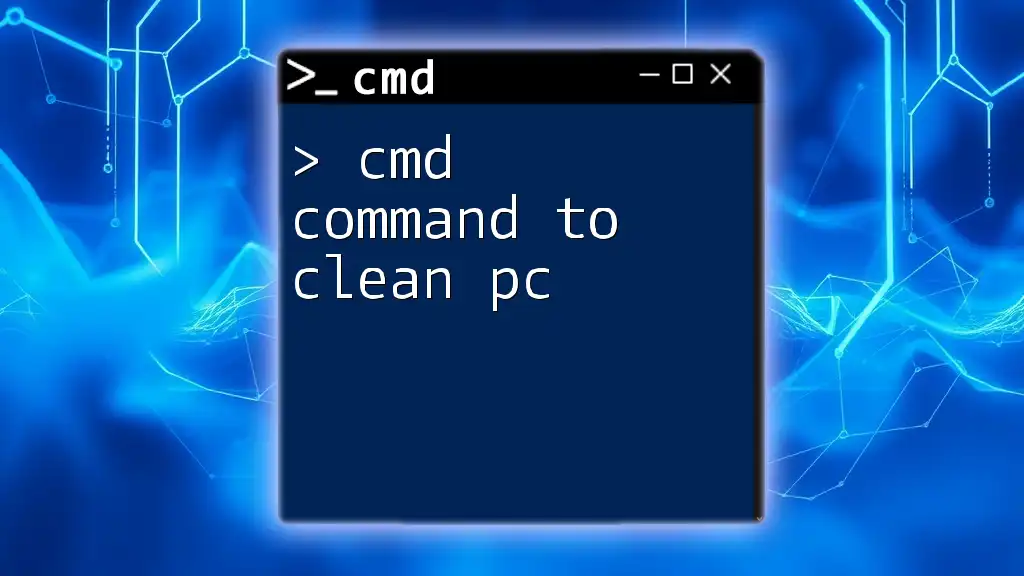
Additional Resources
For further reading, consider checking out tutorials on other useful CMD commands and exploring more features of Atera. Community forums and support groups can also be invaluable in expanding your knowledge and tackling specific challenges you might encounter.

